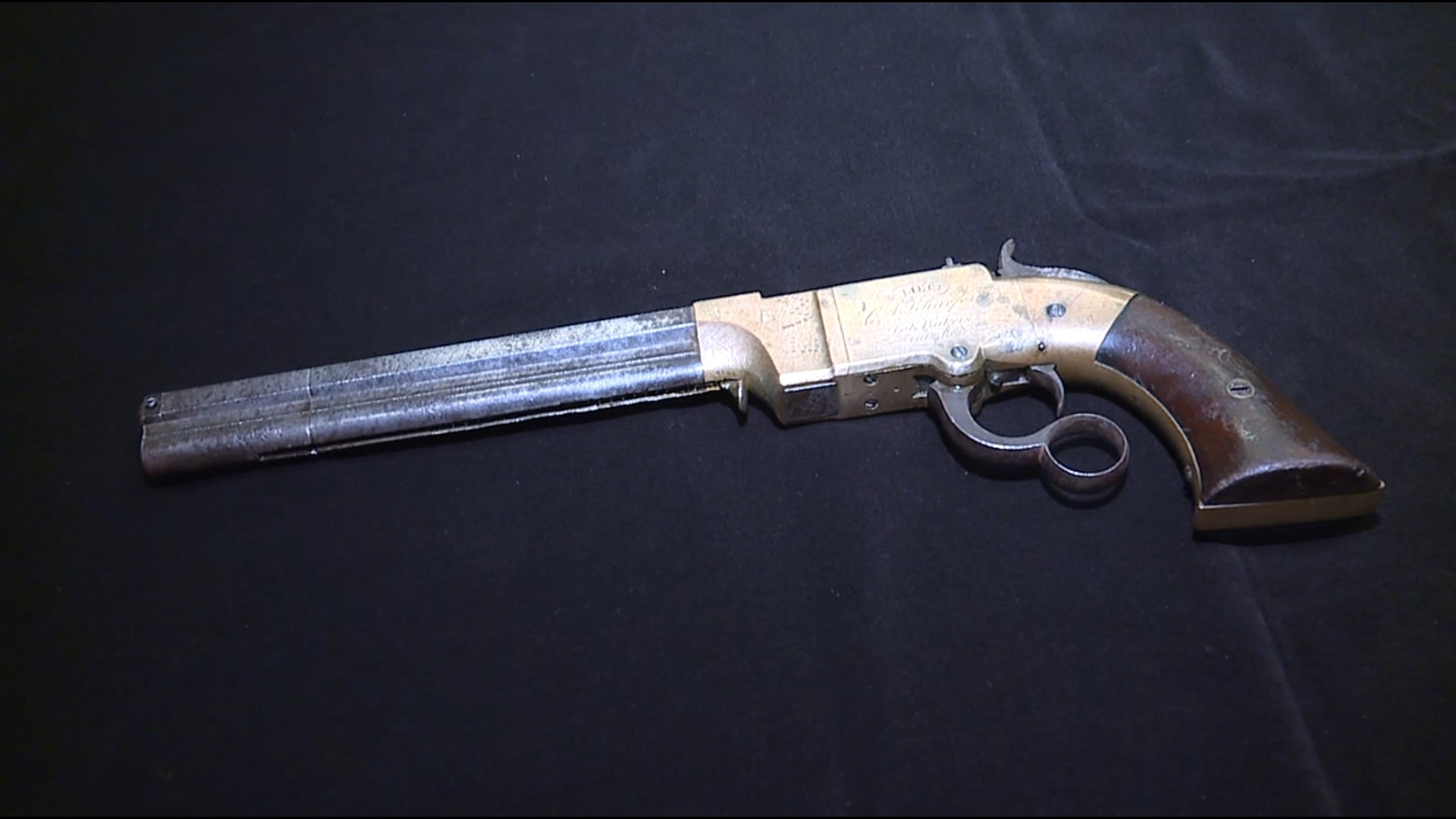HERSHEY, Pa. — Several dozen historical artifacts were returned to Pennsylvania museums this week, decades after they had been stolen from museums across the state and region.
On March 13, the FBI’s Art Crime Team held a ceremony to repatriate 50 items to 17 institutions in five states.
The artifacts span centuries, with the oldest dating back to the French and Indian War that began in 1754.
Their stories didn’t end when they wound up in museums, as all were stolen from museums in the 1970s.
“When they’re closed away in private homes, it really robs the general public and all of our museum visitors from being able to learn from those artifacts and learn those stories as well,” said Valerie Seiber, senior manager of historical collections and exhibitions at the Hershey Story Museum.
The Hershey Story Museum received a Civil War-era volcanic pistol that was used during the Battle of Ball’s Bluff on Oct. 21, 1861. During that battle, Oregon Sen. Edward Baker was killed fighting for the Union. He remains the only U.S. senator to be killed in active military combat.
The pistol was stolen at some point in the 1970s.
The Hershey Story Museum originally showcased historical objects collected by its founder, Milton S. Hershey. However, its mission has changed since then, Seiber said, and now focuses more on the history of the Hershey Company. The museum will likely lend the pistol to a different museum more focused on Civil War history, she said.
The U.S. Army Heritage and Education Center (USHEC) in Carlisle also received two WWII-era pistols stolen in 1979, a Luger pistol and a Walther PP pistol.
According to museum technician Madison Darhower, the pistols were part of an exhibit on Omar Bradley, a five-star general who helped plan D-Day.
“He was more than just a five-star general. In fact, he was referred to as the ‘soldier’s general’ over his men during his time because he was an advocate for them,” Darhower said.
Both museums had less security and no surveillance cameras in the 1970s. At USHEC, the pistols were simply removed from their case, Darhower said.
The man convicted of stealing the artifacts is Michael Corbett, 73, of Newark, Delaware. Partly because he kept the artifacts instead of selling them, he ended up serving just a single day in prison.

